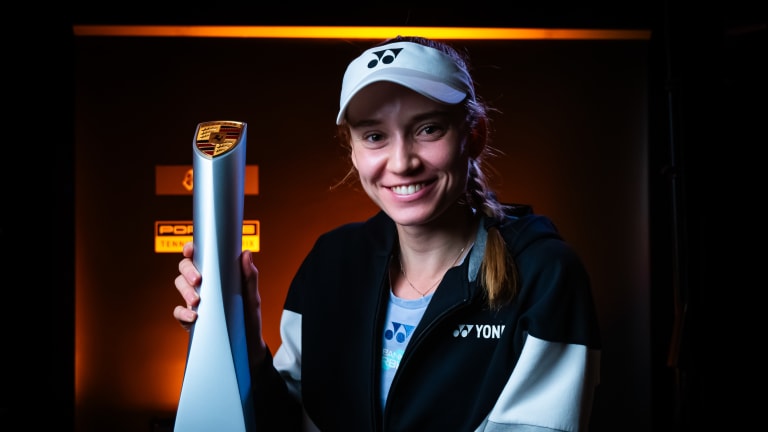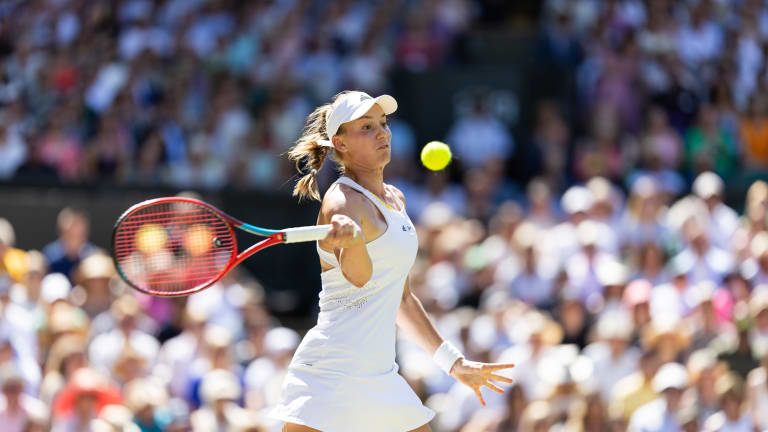Madrid, Spain
Elena Rybakina is a sore winner (this is a good thing)
By Apr 23, 2024Madrid, Spain
Andrey Rublev overcomes fever and praises doctors after winning Madrid Open for the first time
By May 06, 2024Madrid, Spain
Andrey Rublev is the 'most proud' he's ever been after defying adversity in Madrid victory
By May 05, 2024Madrid, Spain
Andrey Rublev rallies, then outlasts, Felix Auger-Aliassime to win Madrid title
By May 05, 2024Madrid, Spain
Big finals don’t get much tighter, or better, than Iga Swiatek and Aryna Sabalenka's melee in Madrid
By May 05, 2024Madrid, Spain
Preview: Andrey Rublev, Felix Auger-Aliassime seeking a turnaround in Madrid final
By May 04, 2024Madrid, Spain
Iga Swiatek saves three match points to beat Aryna Sabalenka in Madrid Open final
By May 04, 2024Madrid, Spain
Iga Swiatek topples Aryna Sabalenka in heavyweight title clash for first Madrid Open crown
By May 04, 2024Madrid, Spain
Preview: Iga Swiatek, Aryna Sabalenka run it back with another all-Top 2 Madrid final
By May 03, 2024Madrid, Spain
Andrey Rublev beats Taylor Fritz to reach Madrid Open final against Felix Auger-Aliassime as Jiri Lehecka joins injured list
By May 03, 2024Madrid, Spain
Elena Rybakina is a sore winner (this is a good thing)
And at this moment, she just might be the best women's tennis player in the world.
Published Apr 23, 2024
Advertising

Since the start of 2023, Rybakina is 10-5 against Top 10 competition. Currently ranked No. 4, she has a 4-2 record against No. 1-ranked Iga Swiatek.
© 2024 Robert Prange
Advertising

This woman is more assassin than warrior. She is reticent rather than verbose, emotionally restrained instead of expressive, and seemingly allergic to the limelight. Rybakina is a legitimate badass.
© Simon Bruty